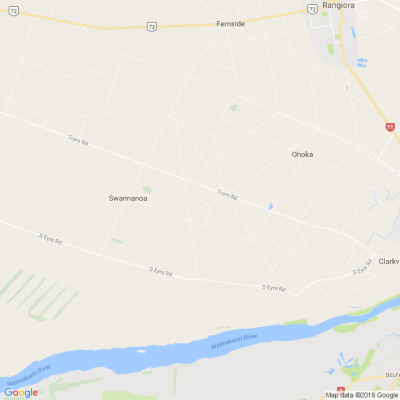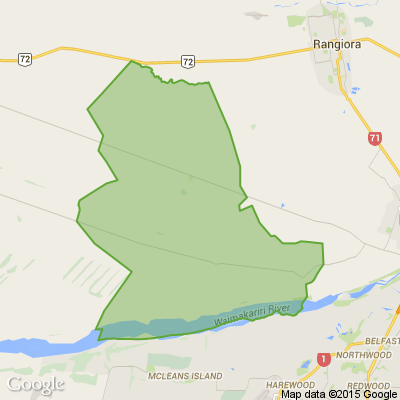Targeted spraying 'necessary'
From local democracy reporter David Hill:
Spraying is a ‘‘necessary’’ form of weed control, council staff say.
Targeted spraying is necessary to support braided rivers and to protect water ways and roadsides from invasive species, the staff said.
Environment Canterbury (ECan) river engineer Sam Kidner and Waimakariri District Council water environment advisor Angela Burton provided updates on their respective council’s spraying programmes at Monday’s Waimakariri Zone Committee meeting.
Kidner said targeted spraying of weeds helped Canterbury’s braided rivers to perform their natural functions, which improved flood protection.
ECan used glyphosate and herbicides to target weeds such as ivy, hops, lupins, gorse, broom and willows.
‘‘Lupins are less of a problem than gorse and broom or willows.
‘‘It is a matter of scale,’’ Kidner said.
‘‘If it is starting to push water in different directions then we need to respond.’’
A build-up of willows on an island, could prevent the river from braiding and, when in flood, it could divert water to riverbanks, causing erosion.
Responding to a question from the floor, Kidner says ECan has conducted trials using bulldozers as an alternative, but found it was not cost-effective and the bulldozers were not able to access all areas.
Kidner says by clearing the ‘‘fairways’’ in rivers, council staff could then manage weeds through spot spraying to allow native species to thrive.
Birds had returned to nest in areas where ECan had successfully completed spraying programmes, he said.
Sometimes flooding could clean up the rivers, but it was difficult to predict when floods would occur.
ECan also sprayed river berms and stopbanks to stop weeds getting out of control.
But he says the council is facing a constant battle.
‘‘Unfortunately not everyone does biosecurity checks on their vehicles, so we could get the rivers looking pristine, but seeds can be spread by vehicles and by other means, so it is still going to be an ongoing problem.’’
Burton says the Waimakariri District Council conducted spraying for roadside maintenance, planting maintenance and around waterways, drainage and water races.
But ‘‘non-chemical methods’’ were preferred, especially for drains.
Property owners could apply to have their street frontage added to the ‘‘no spray register’’.
‘‘Landowners are actively encouraged to not use spray on the land near gutters, but unfortunately it is not something we can enforce.’’
Burton included a report prepared by the Canterbury Waterway Rehabilitation Experiment (CAREX), a University of Canterbury initiative, in her presentation.
The report considered the ecological consequences of using glyphosate to control aquatic weeds in lowland waterways near Rangiora.
It found the ‘‘species richness of invertebrates and fish are not affected by the use of glyphosate’’ in the water ways, but Burton acknowledges it is not a large enough sample size.
As glyphosate spraying has been used for a number of years, any species found in the sample waterways would have some resistance, meaning the study may need to be compared with waterways without a history of spraying before drawing any conclusions.
🧩😏 Riddle me this, Neighbours…
I am an odd number. Take away a letter and I become even. What number am I?
Do you think you know the answer?
Want to stop seeing these in your newsfeed? No worries! Simply head here and click once on the Following button.

Have you got New Zealand's best shed? Show us and win!
Once again, Resene and NZ Gardener are on the hunt for New Zealand’s best shed! Send in the photos and the stories behind your man caves, she sheds, clever upcycled spaces, potty potting sheds and colourful chicken coops. The Resene Shed of the Year 2026 winner receives $1000 Resene ColorShop voucher, a $908 large Vegepod Starter Pack and a one-year subscription to NZ Gardener. To enter, tell us in writing (no more than 500 words) why your garden shed is New Zealand’s best, and send up to five high-quality photos by email to mailbox@nzgardener.co.nz. Entries close February 23, 2026.

Step by step for a great cause!
Our amazing Hillary Hikers from Edmund Hillary Village showed their support for Bowel Cancer New Zealand's Move Your Butt campaign this month!
Sporting the bright purple and orange campaign shirts, these wonderful walkers hit the Auckland waterfront and marched from Mission Bay to Kohimarama, raising awareness for bowel cancer and the importance of early detection along the way.
Click read more to read the full story.








 Loading…
Loading…